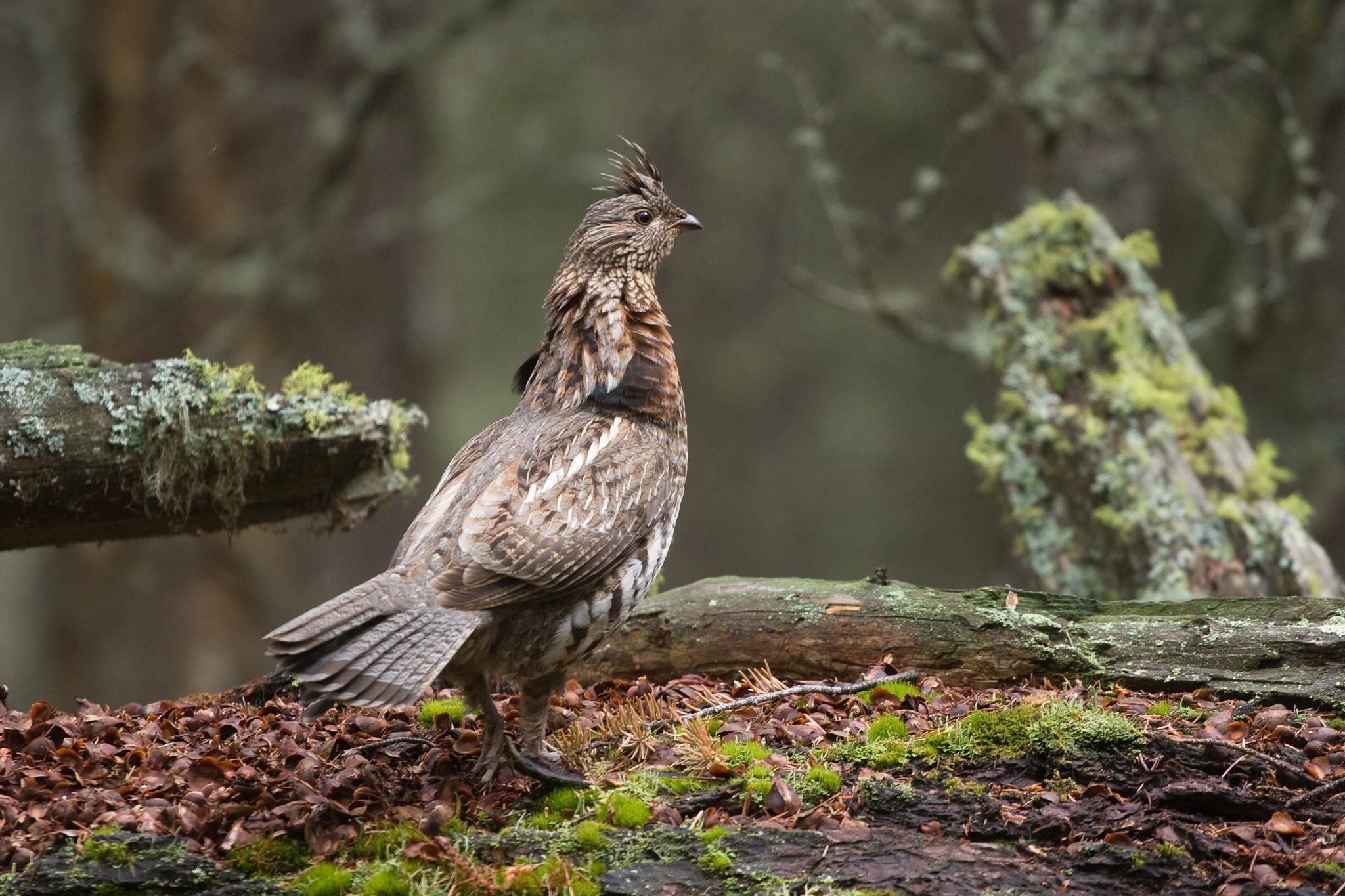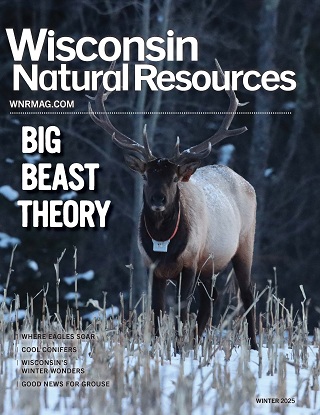Contact: Alaina Gerrits, DNR Upland Wildlife Ecologist
Alaina.Gerrits@wisconsin.gov or 608-513-6739
DNR Seeks Participants For Ruffed Grouse West Nile Virus Sampling
Fall Sampling Kits Available Ahead of Ruffed Grouse Season Opener
 A male ruffed grouse stands on a drumming log. Hunters are encouraged to participate in the final year study on West Nile Virus found in ruffed grouse.
Photo credit: iStock / R_Koopmans
A male ruffed grouse stands on a drumming log. Hunters are encouraged to participate in the final year study on West Nile Virus found in ruffed grouse.
Photo credit: iStock / R_Koopmans
MADISON, Wis. – The Wisconsin Department of Natural Resources (DNR) encourages hunters in the central and northern forests to participate in the final year of sampling for a multi-state study on West Nile virus found in ruffed grouse.
To participate, fill out a short online form to receive a free sampling kit in early September ahead of the Sept. 18 ruffed grouse season opener. The number of kits provided per individual is limited to ensure samples come from a large geographic area. The DNR will work with conservation partners to distribute 500 kits to hunters.
Additional data collection through hunter-contributed samples increases the overall sample size and strengthens study results. Hunters who have unused kits from previous years are encouraged to collect a sample and send it in to be processed as items in the kit do not expire.
Sample testing will begin after the close of ruffed grouse season with results available several months after testing. Hunters will receive test results via email.
West Nile virus is spread by mosquitos and its effects on birds vary. Signs range from no clinical disease or illness to heart lesions and inflammation of the brain's lining and spinal cord. Many factors can influence how severely the virus affects an individual bird. There is no evidence that West Nile can be spread by handling dead birds or by consuming properly cooked game.
Ruffed grouse are native to the northern United States and southern Canada. The Great Lakes region contains some of the most extensive forest habitats for grouse and the healthiest ruffed grouse populations in the nation. The DNR continues to work with partners to develop long-term management strategies for ruffed grouse in Wisconsin.

